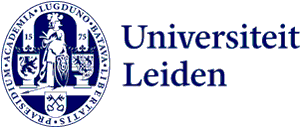Creating partnerships
A partnership with a university or organisation outside of the Netherlands must be based on an agreement. In some cases, Leiden University will not have exchanged students or staff with this university before, and you will first need to create a Memorandum of Understanding (MoU).
Memorandum of Understanding (MoU)
A Memorandum of Understanding (MoU) is an agreement in which Leiden University and the prospective partner university declare that they wish to collaborate with one another, now and in the future. At this point, Leiden University has not yet really got to know this future partner.
An MoU will generally cover the following points:
- Which parties will be collaborating
- A list of activities in which the parties may collaborate
- Rules about intellectual property
Leiden University and the partner university do not have to perform all the activities outlined in the MoU. The purpose of the MoU is merely to indicate that you would like to collaborate for a specific period of time. If you decide to actually start one of the joint activities listed in the MoU, you will first need to create an official partnership agreement, specifying precisely what will be done and by whom.
Your MoU will often be signed by the Rector Magnificus of Leiden University only after this more specific partnership agreement has been created. A copy of the agreement will be held by the International Relations department.
If you have any questions about an MoU, please contact International Relations.
Procedure for new collaborations
We currently have over 60 agreements with foreign universities, so we are selective and we carefully assess strategic alignment before entering new agreements. New ideas can always be submitted to our International Office (international@fgga.leidenuniv.nl)
When assessing new proposals, we initially consider the following:
- Why do we want to work with this partner, what is the added value?
- How could this collaboration help us?
- Does this collaboration fit into our partnership portfolio?
- Which goals do we want to achieve and how could they be achieved through this collaboration?
- Are there any potential risks associated with the collaboration? Also see Knowledge Security, email: adviespuntkv@bb.leidenuniv.nl
For student exchanges, we also look at whether the foreign partner offers courses taught in English and whether students can find courses that match or broaden their curriculum and academic interests.
In the event of positive advice from the International Office, the proposal will be passed on to the Institute Board and Faculty Board for approval. The International Office handles the administrative processing of agreements.
